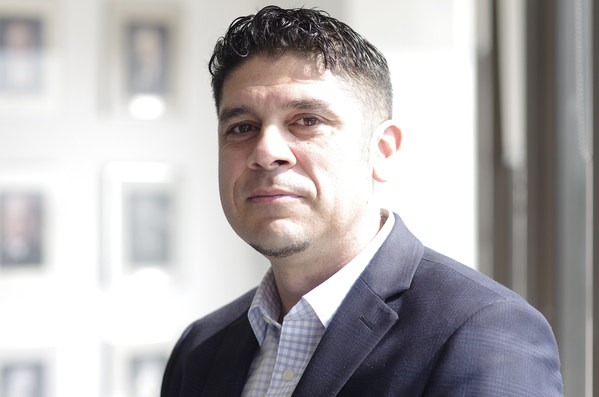TAIPEI, Sept. 15, 2022 /PRNewswire/ -- With the ongoing automotive electrification, Canada's Automotive Parts Manufacturers' Association (APMA) has devoted to Project Arrow to build an EV from the ground up. The collaborative project will bear fruit when unveiling a concept car at the end of this year, demonstrating local companies' competence.
Warren Ali, SVP of innovation at the APMA, said the project creates a neutral and open platform for the country's automotive components and technologies. APMA launched Project Arrow at the Consumer Electronics Show (CES) in 2020.
Ali will be the keynote speaker at Unlocking Global EnnoVation Opportunities, an EV webinar hosted by DIGITIMES Asia, on September 22, 2022.
A concept EV to unveil before 2023
Starting with a design competition that was won by a team of students at Carleton University in Ottawa, Project Arrow has attracted interest from 500 automotive technology and software companies.
Ali said as the project moved into the engineering phase, about 50 companies, including those focusing on components, software integration and the final assembly of vehicles, were selected to work on the concept car. Most of them were "born and raised" in Canada.
The group plans to unveil the vehicle in Canada in December and introduce it to the world at CES 2023. Ali said it would also launch a virtual version of the car to exhibit technologies from companies beyond those working directly on it.
One of Project Arrow's primary goals is to demonstrate the components and technologies of Canada's many small-medium-sized suppliers and manufacturers, Ali said. The country also fosters a growing group of software companies focusing on the human-machine interface, cybersecurity, structure elements within vehicles and lightweighting.
Ali said another goal of the project is to perform a gap analysis through the process – identifying the technologies, components or expertise Canada must expand and grow to be successful both near-term and into the future. For instance, Canada can use more talents in designing vehicles and building prototypes. He added that the project recruited a chief engineer who worked for Aston Martin, a British sports car manufacturer, and participated in its special projects such as Valkyrie, Formula One, and vehicles used in recent James Bond movie series.
Project Arrow is an experimental and collaborative effort that provides suppliers with a more neutral platform to demonstrate their innovations to OEMs. Ali said a supplier traditionally innovates with the OEM's needs. For example, an OEM is like a master chef who designs the menu (car) and then goes to the market looking for every ingredient (component) required. However, Project Arrow went in reverse.
"We went out and saw all of the best and brightest things that we had. And we said,' what can we build using all of this?'" Ali said.
Project Arrow can explore many new ideas to build the concept car. For instance, Ali said the inner panels of the vehicle will contain composite materials using agricultural waste, which would have gone to a landfill or been burned.
A collective project showing Canadian auto industry's resilience
APMA and its partners from the industry and academia proceeded with the project at a time when the Canada-United States-Mexico Agreement came into effect in July 2020. Ali said it is a free trade agreement (FTA) offering Canada an opportunity to grow the automotive sector's contribution to GDP from CAD35 billion (US$26.6 billion) to more than CAD40 billion annually.
The collective project could be useful when dealing with production challenges. For instance, Ali said while the group still has to figure out how it can address issues regarding semiconductor shortages, it found a partner that manufactures chips and develops an innovative platform that may reduce the number of electronic control units (ECUs) within a car.
Project Arrow has uncovered the strength and resiliency of the Canadian automotive supply chain, Ali said. The industry now can scale up to meet volume, quality and safety expectations from battery management systems, components and many others.
Ali said the industry has also formed international partnerships with manufacturers in Europe and Asia through this project.
More importantly, Project Arrow bridges the traditional automotive world and the new generation of mobility technology and service providers. Ali said there is a collaboration integrating traditional manufacturers and new technology companies in each major vehicle system, such as battery and interior design of the vehicle.
The cooperation would enable a more robust end product and make the automotive industry in Canada successful for the next 100 years, Ali concluded.
Join DIGITIMES Electric Vehicle webinar in discovering the Global EnnoVation opportunities, find out how to build an all-round EV ecosystem, strategizing for EV Blue Ocean.
For more webinar information, please visit https://reurl.cc/m3MR5M
CONTACT: Cleo.chang@digitimes.com











